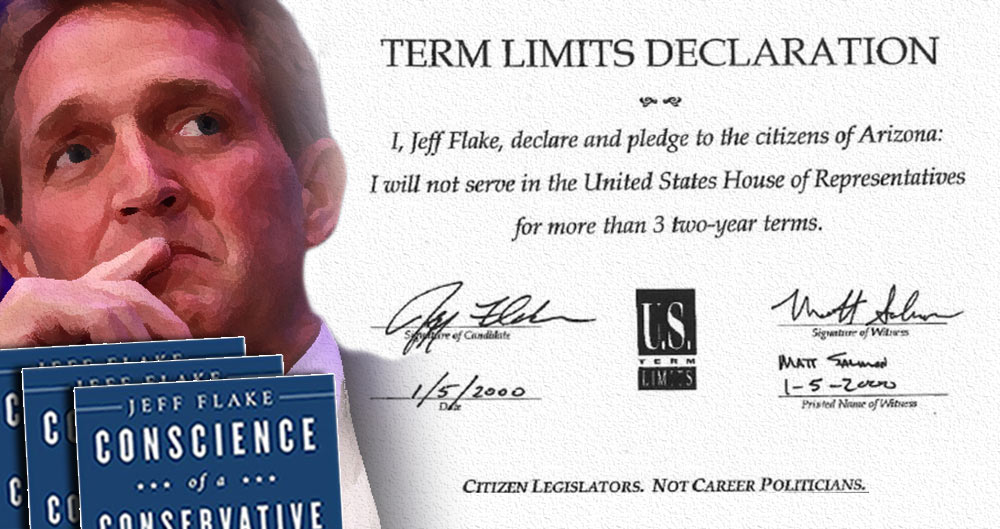Yesterday, a major American politician gave up.
Sort of.
Senator Jeff Flake, the junior member of the upper chamber from the State of Arizona, took to the Senate floor to announce that his “service in the Senate will conclude at the end of my term in early January, 2019.”
Actually, most of the speech was an appeal to President Trump.
Or a lambasting.
In either case, he was echoing his recent book, Conscience of a Conservative: A Rejection of Destructive Politics and a Return to Principle, which columnist David Brooks has described as a “thoughtful defense of traditional conservatism and a thorough assault on the way Donald Trump is betraying it.”
In the Age of Trump, anti-Trumpian manifestos are … controversial in GOP ranks. And his opposition has cost him. All bets were against him winning re-election.
“I believe that there are limits to what government can and should do,” Flake wrote in a letter to supporters, going on to say “that there are some problems that government cannot solve, and that human initiative is best when left unfettered, free from government interference or coercion.”
Solid principles. Principles I share. But how principled was Flake? He began his career promising to limit his own terms, in accordance with … conservative principles. And yet the man from Snowflake, Arizona, broke that promise in 2006, holding on to his House seat for three more terms.
For his remaining 14 months in the Senate, Flake can return to the principle he reminded himself of in yesterday’s speech: “Sustained incumbency is certainly not the point of seeking office.”
There’s life after Congress. And Jeff Flake can do good things in the real world.
This is Common Sense. I’m Paul Jacob.


